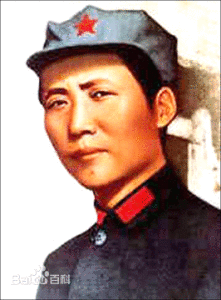For many generations, Chinese families have taken great pains in picking names for their children, fearing that “if the name is not correct, the words will not ring true” — a poorly chosen name will doom the child to ill fortune.
Some of the painstaking care of naming can be seen by breaking down in the idea of “mingzi” 名字, which is the Chinese word commonly translated into English as “name” or, more precisely, “given name.”
Originally, mingzi was actually two separate concepts. Ming was what we now generally call the name, and zi, which now translates as “character” (as in Chinese character) was actually a separate name, given as an alternative name similar in meaning, or to elaborate on the meaning of the ming with an allusion or connection.
For example Confucius, who is usually called Kongzi 孔子 in Chinese actually had the ming-name Kong Qiu 孔丘 and the zi of Zhong Ni 仲尼.
Yue Fei 岳飞, to take another example, was a 12th century general known for his patriotic defense of Song China. His given ming name, Fei 飞, means to fly. His zi-name of Pengju 鹏举 then elaborates on that ming-name with Peng 鹏 representing a fabulous mythical bird, and Ju 举 meaning to raise or hold up.
More recently, Mao Zedong 毛泽东 was also known by his zi name, Mao Runzhi 毛润之, and Chiang Kaishek 蒋介石 by his Chiang Zhongzheng 蒋中正.
At that time, it was considered rude to call someone by their ming name, so generally you would use their zi name to show respect. On the other hand, when referring to yourself, it was considered more polite and humble to use your ming name. To refer to yourself by your zi name would be considered arrogant to the point of megalomania, not unlike the feeling of someone in English referring to themselves in the third person.
Aside from these formal given names, most Chinese also have a nickname of sorts, a “familiar name” called ruming 乳名 (ru literally meaning “breast” or “milk”) that’s given as soon as a child is born. The familiar name is used in the family, and often there is no formal name given until the child begins school. For example Mao’s familiar name was Shisanyazi 石三伢子, whose meaning was related to his family’s history.
But familiar names have a twist. Many non-Chinese exposed to familiar names, especially names from the countryside, have been shocked by their vulgar and seemingly insulting nature. How would you like to be named Gousheng “Leftovers from a dog” 狗剩 or “Manure basket” 粪筐? In my own village I knew a fellow called “Pee” 尿, another named “Coward” 孬, and one known simply as “Stupid” 傻子.
As you might have guessed by now, it’s thought that the more despicable the name, the more the parents show their care for the child. The logic is in accordance with the mentality that “a worthless name is easier to provide for” 贱名好养.
To make sense of this thinking, we have to spend a few moments with Yama 阎王, the king of Hell, who is said to be in charge of life and death in a similar way to the Grim Reaper of western tradition. They say he carries a book in which is recorded the length of each life and time of each death. As soon as a person’s time is up, Yama dispatches the Black and White Messengers of Death, two lesser devils to do the job.
However, as Yama leafs through the book, if he finds a name sufficiently revolting, he might be compelled just to skip over it, to avoid having to deal something so disgusting. In this way the (un)fortunately-named person is spared an early death and left to live in peace on earth.

